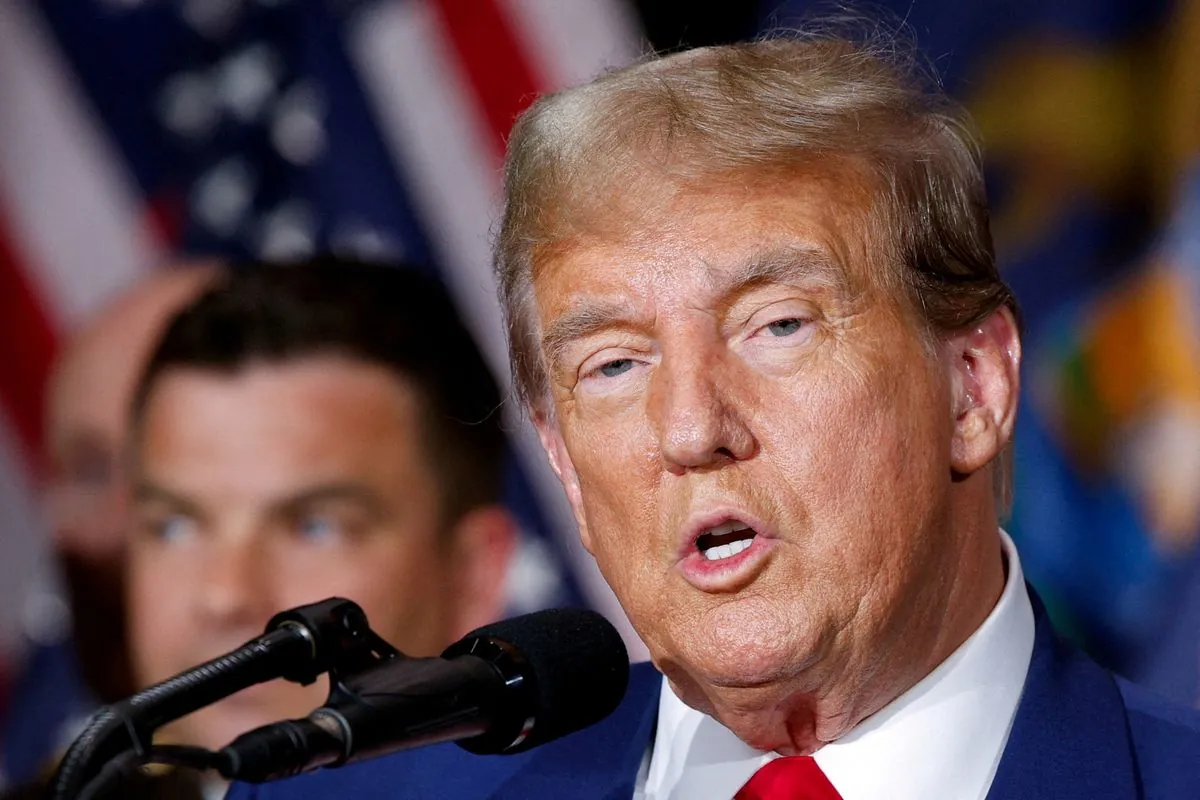Trump Proposes IVF Coverage Mandate in Bid for Female Voters
Former President Trump announces plan for mandatory IVF treatment coverage, aiming to address reproductive rights concerns. The proposal lacks details and faces skepticism from experts and advocacy groups.

In a strategic move to address his deficit among female voters, Donald Trump has unveiled a proposal for comprehensive coverage of In Vitro Fertilization (IVF) treatments. The announcement, made during a speech in Pottersville, Michigan, comes as the former president faces political challenges on reproductive issues in his campaign against Vice President Kamala Harris.
Trump's plan, which lacks specific implementation details, calls for either government or private insurance companies to cover all costs associated with IVF treatments. This proposal aims to position Trump as "pro-family" and counter criticisms of his stance on women's rights.
"I'm announcing today in a major statement that under the Trump administration, your government will pay for — or your insurance company will be mandated to pay for — all costs associated with IVF treatment. Because we want more babies, to put it nicely."
The announcement comes amid ongoing debates surrounding reproductive rights and access to fertility treatments. In February 2024, the Alabama Supreme Court ruled that frozen embryos are considered people, sparking concerns about potential threats to IVF access. This ruling led to a flurry of legislative activity, including a bill signed by Alabama Governor Kay Ivey in March 2024 to protect individuals from legal liabilities related to IVF.
IVF, a complex series of procedures used to assist with fertility and conception, has been a topic of increasing importance in recent years. Since its introduction in 1978, IVF has led to over 8 million births worldwide. However, the treatment remains expensive, with a single cycle in the United States costing between $12,000 and $17,000 on average.
Experts and advocacy groups have expressed skepticism about the feasibility of Trump's proposal. Allison K. Rodgers, a reproductive endocrinologist, voiced concerns about the implementation of universal IVF coverage, citing the current political climate and recent legal rulings limiting access to care.
Trump's announcement also highlights the complex political landscape surrounding reproductive rights since the Supreme Court overturned Roe v. Wade in 2022. The former president has struggled to navigate this issue, insisting that abortion policy should be left to individual states while facing criticism for his role in appointing justices who contributed to the Roe v. Wade reversal.
The proposal comes as Trump attempts to address a widening gender gap in voting patterns. In the 2020 election, exit polls showed that his opponent won 57% of women voters, a trend that recent polls suggest may intensify in the upcoming election against Harris.
As the debate over reproductive rights continues to shape the political landscape, Trump's IVF coverage proposal represents an attempt to reframe his position on women's health issues. However, the lack of specific details and the complex nature of IVF coverage leave many questions unanswered about the feasibility and impact of this proposal.

While Trump's announcement has garnered attention, it remains to be seen how this proposal will be received by voters and whether it will effectively address the concerns surrounding reproductive rights and access to fertility treatments in the United States.


































